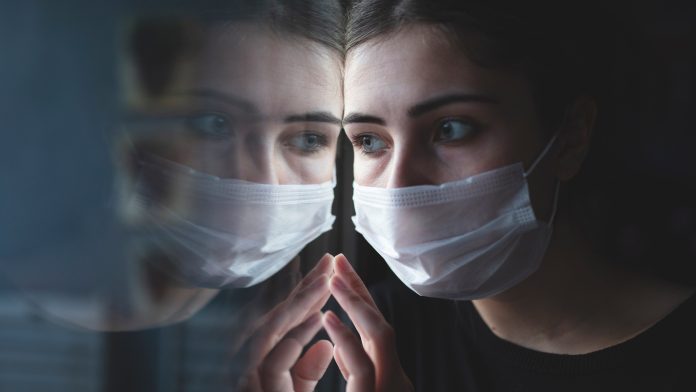
A new study performed at Oregon State University has discovered that people infected with COVID-19 are at an elevated risk of developing a psychiatric disorder.
The research published in World Psychiatry suggests that COVID-19 patients have up to a 25% increased risk of experiencing a psychiatric disorder within the four months following the initial infection compared to patients who had other types of respiratory tract infections.
Lauren Chan, PhD, the co-author of the study and a student in nutrition in OSU’s College of Public Health and Human Sciences, said: “The findings support previous research on psychiatric disorders among post-COVID patients, though the current study found a smaller effect than the earlier studies.”
Long-term mental health impacts of COVID-19
For their investigation, the team utilised data from the National COVID Cohort Collaborative (N3C), which enabled them to match 46,610 COVID-19 patients with control patients diagnosed with a different type of respiratory tract infection to evaluate how they impact mental health.
The team analysed the rate of psychiatric disorder diagnoses between two periods. The first was between 21 and 120 days after the original COVID-19 diagnosis and the second from 121 to 365 days following diagnosis. The investigation was limited to patients with no previous mental illness.
The results signified that COVID-19 patients’ rate of developing a psychiatric disorder was 3.8%, whereas those with other respiratory tract infections was 3%, with the 0.8% disparity translating to around a 25% increased relative risk.
Subsequently, the researchers individually examined the incidence of anxiety and mood disorders, observing a minor but significant increase in risk for anxiety disorders but no change for mood disorders.
Mitigating psychiatric disorders
The study illustrates the critical need for patients and health services to proactively address mental health issues following COVID-19 infection, tackling the conditions before a serious psychiatric disorder arises.
Chan commented: “For people that have had COVID-19, if you’re feeling anxiety, if you’re seeing some changes in how you’re going through life from a psychiatric standpoint, it’s totally appropriate for you to seek some help. And if you’re a care provider, you need to be on the proactive side and start to screen for those psychiatric conditions and then follow up with those patients.
“There could certainly be people who are struggling with new things like this, and they need that additional support or push to seek some help. I don’t want to say that every single person who gets COVID-19 is going to have this type of problem, but if you start to have concern for yourself or a family member, it’s not unheard of. You should definitely seek care for yourself or others around you.”
COVID-19 has devastated health systems around the world, stretching already sparse resources thinner than ever. An emerging mental health pandemic caused by the virus will add further strain to services still in the process of recovery.
Chan concluded: “We already had struggles in trying to identify a professional to work with, and we’re going to keep having difficulties getting people the care they need. If we do see this kind of increase in post-COVID-19 psychiatric conditions, and people are recognising them and trying to seek care, it poses some concern.”
Ben Coleman, the lead author of the study from the Jackson Laboratory for Genomic Medicine, is now working on a follow-up study investigating the link between long COVID symptoms and new-onset mental illness.






















